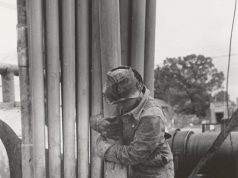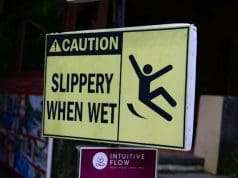
Workplace injuries can change your life in an instant. Whether you work in hospitality, construction, transportation, retail, healthcare, or any other industry common in Las Vegas, the physical, emotional, and financial fallout can be overwhelming. One moment you’re performing your job as usual, and the next you may be facing medical bills, missed paychecks, and uncertainty about when — or if — you’ll return to work. Navigating what comes next isn’t always straightforward, but understanding your rights and the benefits available to you is the first step toward regaining stability.
This guide breaks down the essentials of workers’ compensation in Nevada, how the system works, what challenges injured workers commonly face, and why professional support can make a meaningful difference during the claim process.
The Basics of Workers’ Compensation in Nevada
Workers’ compensation is a state-regulated system designed to protect employees injured on the job. In Nevada, the system provides medical care, wage replacement, and rehabilitation assistance, regardless of who caused the accident. The goal is to ensure injured workers receive prompt support without needing to sue their employer directly.
Why Workers’ Compensation Exists
The workers’ compensation structure prevents long, complicated lawsuits between employees and employers by offering guaranteed benefits in exchange for limiting most litigation. The system is meant to be accessible and supportive. However, its rules, forms, and deadlines often feel confusing for people experiencing pain, stress, and financial strain. Federal resources, such as the U.S. Department of Labor’s overview of workers’ compensation programs, offer a general understanding of how workplace injury protections function nationwide and reinforce the importance of timely reporting and documentation.
Types of Workplace Injuries Covered
Nevada workers’ compensation covers a wide range of injuries and occupational illnesses. Physical accidents — such as falls, machinery incidents, repetitive strain injuries, or transportation-related accidents — are the most common. But the law also recognizes conditions that develop over time, including hearing loss, respiratory issues from chemical exposure, and chronic musculoskeletal problems. Psychological injuries may also be covered when linked to a physical workplace incident.
What to Do Immediately After a Workplace Injury
What happens in the minutes, hours, and days following an injury can significantly impact the success of a claim. Even workers with clear injuries face challenges later if they miss important steps early on.
Reporting Your Injury
Nevada requires workers to report injuries to their employer as soon as possible. Employers typically provide formal documentation, but even a verbal report begins the record. Reporting quickly protects your eligibility for benefits and prevents the insurer from arguing that the injury happened off the job.
Seeking Timely Medical Care
Prompt medical attention does more than safeguard your health — it creates essential documentation. Doctors note the injury, symptoms, and recommended treatment in medical records that become evidence in your claim. Delays make it easier for insurers to argue that your condition isn’t work-related.
Filling Out Required Forms
Nevada uses a series of forms to track and verify workers’ compensation claims. The C-4 form, completed by your treating physician, officially starts your claim with the insurer. Workers who wait too long to file risk losing benefits altogether. Understanding these forms and ensuring they’re completed correctly gives your claim a stronger foundation.
How the Claims Process Works in Las Vegas
Once your workplace injury claim is officially filed, several steps follow. Although the system is intended to support injured employees efficiently, it often moves slowly and involves multiple evaluations.
The Insurer’s Role
Your employer’s workers’ compensation insurance provider reviews your claim, examines medical records, and may request additional tests or evaluations. Their job may be to provide benefits, but insurers are also motivated to minimize costs. This can lead to disputes, delays, or denials — even when the injury is legitimate.
Medical Treatment and Recovery
Injured workers often rely on physicians approved by the employer or insurer. These doctors monitor progress, assign work restrictions, and determine when you can return to work. Some workers feel their pain or limitations aren’t taken seriously, which can create tension with the insurer. Nevada law allows second opinions, and sometimes a different provider gives a more accurate assessment of the injury’s long-term effects.
Understanding Disability Ratings
If your injury results in lasting impairment, you may receive a disability rating. This rating influences whether you receive benefits for permanent partial disability or permanent total disability. Because disability ratings affect long-term compensation, disputes between doctors and insurers are common. Workers often need support to navigate this process fairly.
Challenges Workers Commonly Face
Many injured workers expect the system to work smoothly for them, but real-world obstacles often make the experience difficult.
Claim Denials and Disputes
Claims can be denied for many reasons: incomplete forms, delayed reporting, insufficient medical evidence, conflicting statements, or even misunderstandings during medical evaluations. Denials are not final — but appealing requires knowledge of the process and strong documentation.
Pressure From Employers
Although retaliating against an injured worker is illegal, some employees experience subtle or direct pressure. This may include discouraging reporting, minimizing the injury, or pushing the employee to return before they are medically ready. Understanding your rights helps you maintain control during this vulnerable time.
Financial Stress During Recovery
Even with wage replacement benefits, workers often receive only a portion of their usual income. Combined with medical bills and daily expenses, financial pressure builds quickly. This is why timely claim approval and accurate disability ratings are so important.
When to Seek Legal Help
Navigating workers’ compensation alone can be overwhelming. Many workers turn to dedicated Las Vegas workplace injury compensation lawyer representation to protect their rights, especially when dealing with complex injuries, uncooperative insurers, or disputes about benefits.
How Attorneys Strengthen Your Case
Experienced lawyers help injured workers by gathering strong medical evidence, communicating with insurers, ensuring forms and deadlines are handled correctly, and pushing back against unfair denials. They understand the arguments insurers use to reduce or reject claims and know how to counter them. They also assist with appeals, hearings, and negotiations for permanent disability awards.
Understanding Your Long-Term Options
Some injuries permanently affect a worker’s ability to return to their previous job. Attorneys help explore options such as vocational rehabilitation, alternative work arrangements, or long-term disability benefits. Understanding your full range of options early prevents mistakes that could limit your financial future.
Why Legal Reputation Matters
Workers often feel more confident choosing attorneys backed by strong professional reputations. Many people look at legal directories or peer-review platforms when evaluating law firms because they highlight experience, credibility, and performance. Well-established firms in Las Vegas frequently appear in these directories, giving injured workers reassurance during an uncertain time.
Returning to Work After an Injury
Returning to work depends on your medical progress and your employer’s ability to offer accommodations. Some employees return quickly, while others require modified duty or reduced hours. A smooth transition should always prioritize your health, not your employer’s convenience.
Modified Duties and Work Restrictions
If your doctor restricts certain activities — such as lifting, standing, or repetitive motions — your employer must follow those restrictions. If the employer cannot provide work within those limitations, disability benefits may continue.
When You Can’t Return to Your Previous Job
Severe injuries may prevent full recovery. Nevada offers vocational rehabilitation for workers who need help transitioning into new roles or careers. These programs focus on long-term stability and ensuring workers can maintain financial independence.
Conclusion
Understanding your options after a workplace injury in Las Vegas is essential to protecting your health, income, and future. The process can be confusing, but knowing your rights, following the proper steps, and seeking help when needed can make a significant difference. Whether you’re dealing with a straightforward injury or a complex long-term condition, the decisions you make early on will shape your recovery and the benefits you receive. With the right information and support, injured workers can navigate the system confidently and move forward with stability and security.



